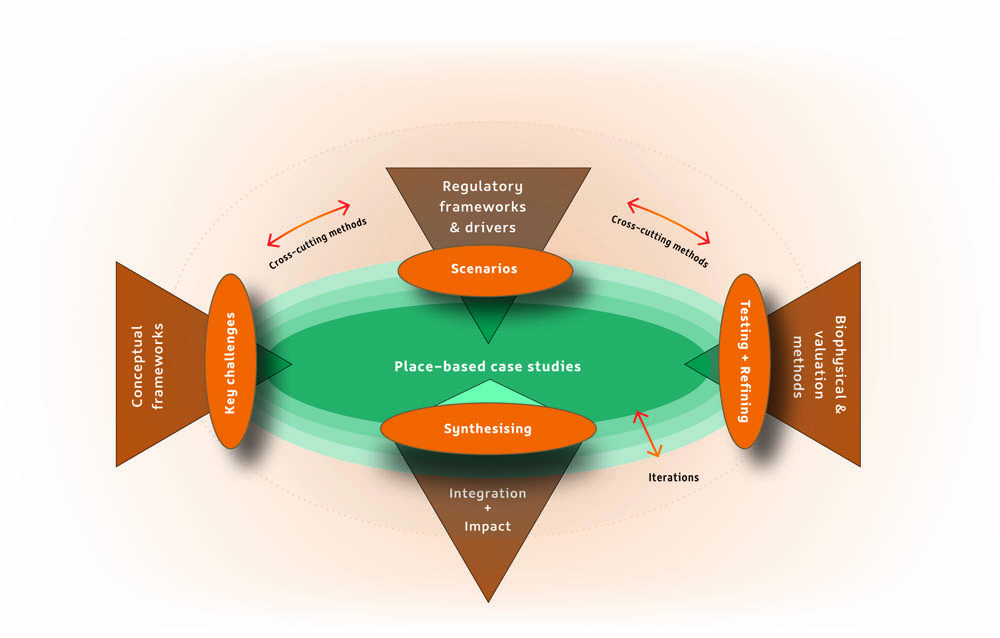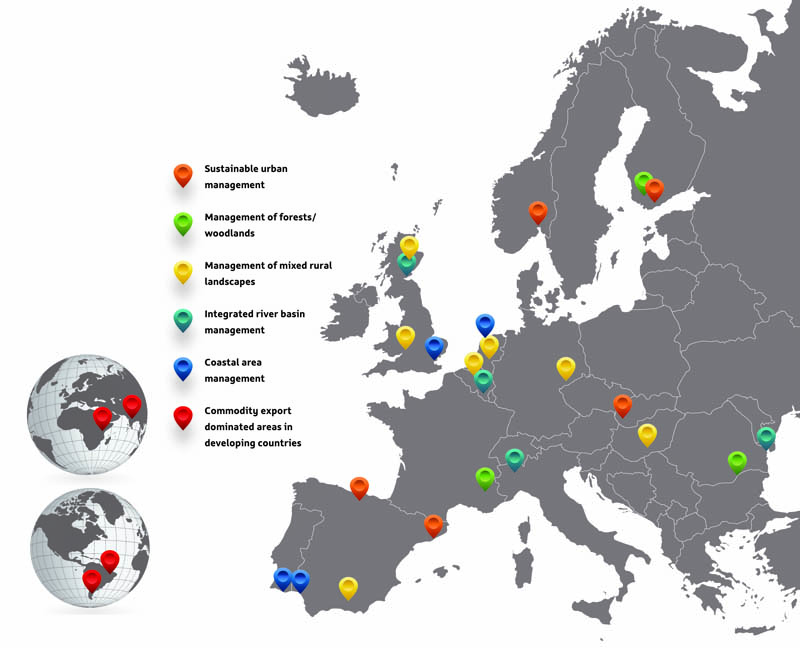OpenNESS − Operationalisation of Natural Capital and EcoSystem Services
From Concepts to Real-world Applications
UFZ-Team
Partner
Project coordination:
Eeva Furman
Finnish Environment Institute (SYKE)
Duration
December 2012 − May 2017
Status
OpenNESS is funded by the European Union, within the 7th Framework Programme (project code 308428).
Homepage

Description
Project Background
Despite improved understanding of the links between ecosystem health, provision of ecosystem services and human well-being, the concepts of ecosystem services and natural capital are still hard to apply operationally to policy and management problems.
OpenNESS is a European research project that translates both concepts into operational frameworks that provide tested, practical and tailored solutions for integration into land, water and urban management and decision-making. We examine how the concepts link to, and support EU sectoral and cross-sectoral policy initiatives and scrutinizes its potential and limitations. The OpenNESS consortium consists of 35 partners, including 10 SMEs, from 14 European and four non-European countries.
The OpenNESS approach is based on an iterative cycle of methodological development and refinement linked to application in a set of 27 real-world case studies.
Aim of OpenNESS
Our aim is to increase conceptual understanding in relation to the four key ecosystem services challenges: (i) human well-being; (ii) sustainable ecosystem management; (iii) governance; and (iv) competitiveness. In addition, we undertake reviews of existing methods for policy and scenario analysis, biophysical ecosystem services assessment and ecosystem services valuation and assessing the relevance of each method for the four key challenges.
Multi-scale case study approach
Central to OpenNESS is a multi-scale case study approach, designed to ground ideas and theories on real-world observations and analysis. To do this, we work with public and private decision-makers and stakeholders to better understand the range of problems faced in these different case study contexts. We use the conceptual frameworks to develop specific research questions that need to be addressed in each case study context in consultation with local stakeholders. The problems defined in the case studies will be matched to the methods, which will continue to be developed and refined along the project. Guidelines for the application of methods in the case studies will be created.
The 27 OpenNESS case studies cover a range of socio-ecological systems and are clustered according to the policy and management focus for ecosystem service operationalization:
- Sustainable urban management
- Management of forests/ woodlands
- Management of mixed rural landscapes
- Integrated river basin management
- Coastal area management
- Commodity export dominated areas in developing countries

Results of OpenNESS
The work will amongst others deliver an interactive online application to be used in real-life situations, by providing practical tools, approaches and best practices that are fit-for-purpose and sensitive to the plurality of decision making contexts. In addition, we synthesize the outputs into guidelines and recommendations that will also help to ensure that outputs from the research are disseminated to a wide audience.
